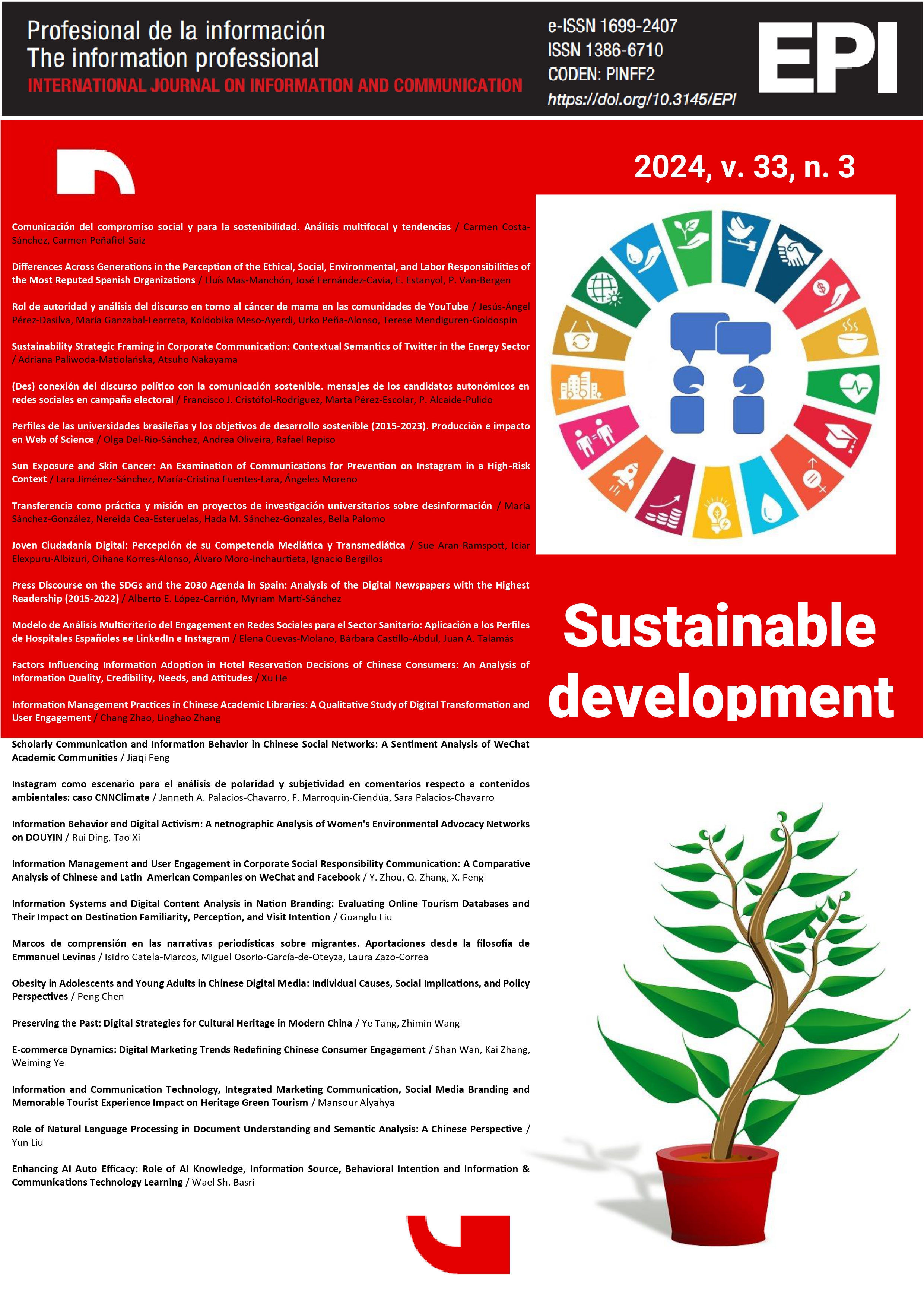Preserving the Past: Digital Strategies for Cultural Heritage in Modern China
DOI:
https://doi.org/10.3145/epi.2024.ene.0321Palabras clave:
Cultural Heritage, China, Digital Technology, Strategy, Sustainable DevelopmentResumen
Cultural heritage has become more significant in today’s global scenario, when technological advancements and use of digital technology have enabled the development of new ways to gather, safeguard, modify, and distribute information related to cultural heritage. This research examined the significance of digital strategies for the cultural heritage and the current prominent challenges it is encountering. This research utilized digital technology to effectively showcase China's cultural history to a wide audience, both nationally and globally. It aimed to reinterpret and analyze the cultural heritage, fill it with fresh cultural and historical significance. The purpose of this study was to inspire individuals, to acquire the skills to utilize modern technology in order to advance the preservation and growth of cultural heritage, finally resulting in its comprehensive utilization and sustainable development. Before attempting to design a unique digital display and dissemination technology system, it is crucial to carefully evaluate and analyze various digital technologies to determine their suitability. The results of the study reveal that digital solutions contribute significantly for preserving cultural heritage in modern China and have important implications for policymakers and cultural heritage agencies in China and other countries.
Descargas
Descargas
Publicado
Cómo citar
Número
Sección
Licencia
Derechos de autor 2024 Profesional de la información

Esta obra está bajo una licencia internacional Creative Commons Atribución 4.0.
Condiciones de difusión de los artículos una vez son publicados
Los autores pueden publicitar libremente sus artículos en webs, redes sociales y repositorios
Deberán respetarse sin embargo, las siguientes condiciones:
- Solo deberá hacerse pública la versión editorial. Rogamos que no se publiquen preprints, postprints o pruebas de imprenta.
- Junto con esa copia ha de incluirse una mención específica de la publicación en la que ha aparecido el texto, añadiendo además un enlace clicable a la URL: http://revista.profesionaldelainformacion.com
La revista Profesional de la información ofrece los artículos en acceso abierto con una licencia Creative Commons BY.




